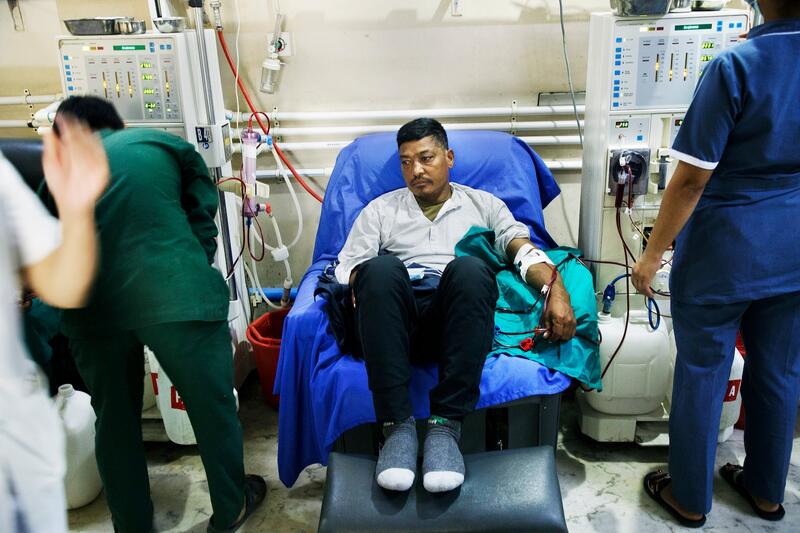Purna, Til and Man Bahadur are the names of three South Asian men who migrated from Nepal to the United Arab Emirates (UAE) seeking work. Now as UAE returnees, Human Rights Watch documented their testimonies as illustrations of the escalating climate risks that the migrant workers are suffering in the country, -particularly due to the extreme heat.
Although confronted with this context, the United Arab Emirates fails to implement adequate heat protections for workers, opting instead to rely on arbitrary and predefined midday work bans. This is a concerning issue if we take into account that extreme heat can have lifelong consequences and even be fatal. Particularly, it could impair cognitive function, cause heat rash, cramps, heat exhaustion and heat stroke, and has also been related to kidney injuries in outdoor workers. The latter is exemplified by the three aforementioned men who, under the abusive kafala system that regulates migrant workers’ legal status in the UAE, were deemed disposable by their employers and had to return home to treat their end-stage renal diseases. Once home, however, the disease would not just consume their lives, but also the lives of their families and/or caretakers. In this scenario, the UAE, lacking any social protection or remedy for the affected workers, places the care burden of these people on the overstretched healthcare systems of the migrant origin countries -like Pakistan, Nepal and Bangladesh- and on the migrants’ vulnerable families.
This is the reality that workers are compelled to face under the coercive kafala system, whereby, despite the insufferable conditions, workers have no choice but to work. As one Pakistani worker puts it: “If we take a day off, the company deducts three days’ salary (…) If we say something or disagree (..) the foreman threatens to cancel our visas and arrange for our deportation”. Of course, the UAE’s ban on trade unions also plays its part in discouraging workers’ ability to demand stronger labor protections.
Other forms of abuse are also important to consider when analyzing the intersection between those and the climate crisis: the exorbitant recruitment fees and the wage theft inherent to the kafala system. Specifically, these affect migrants’ ability to send remittances home, a financial aid particularly significant during economic decline and emergencies like climate-related extreme weather events. In this sense, it is primordial to emphasize that the South Asian countries of origin of migrant workers in the UAE, -such as Nepal, Bangladesh and Pakistan-, are home to climate-vulnerable communities where extreme weather and slow onset events lead to massive economic and social costs. Costs that could be alleviated if the UAE-based migrant workers and foreign laborers in the Gulf countries more generally were not subjected to the abuses of the kafala system.
These abuses, which occur in a context where the UAE -along with other historical emitters- is fueling the climate crisis, are clear manifestations of climate injustice that contribute to the narrative that asserts, and rightly so, last year’s COP28 celebration in the UAE as paradoxical. The UAE´s externalization of climate risks to those who contribute the least to the climate crisis as well as the irresponsibility it exhibits towards them as an important emitter and its inaction in the face of the abusive kafala system, are therefore the characterizing traits of the relation between the migrant worker’s abuses and the climate crisis in the United Arab Emirates, in which our attention should be placed to demand effective change.

